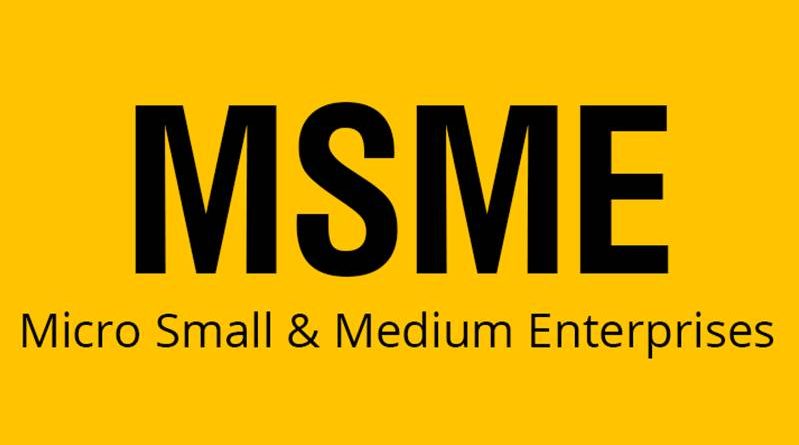3 out of 4 SMMEs (MSMEs) will not survive – #CombatCovid survey findings released [report]
The Covid-19 pandemic has already significantly impacted local businesses. A recent entrepreneur research survey conducted by Heavy Chef, in collaboration with Xero, Retail Capital, Whipping The Cat, Workshop17 and Payfast, reveals how serious this problem really is.
As the economy spirals downwards, the survey results shine a cold light on the experiences of local business owners.
The #CombatCovid SMME Survey engaged with small business owners across South Africa to appraise the extent of the damage reaped upon their livelihood. The SMME Survey partner collective included stakeholders from the local small businesses eco-system such as iKhokha, Efficacy Payments, Innervation, SureSwipe, Flash and Humble.
CEO of Retail Capital, Karl Westvig points out:
The coming together of such a wide range of partners is unprecedented. In these trying times, it is encouraging to see a diverse collective of community organisations coordinate on a project like this with the true interest of small businesses at heart.
These are the key findings from the 2,280 small business owners who took part in the research just before the government announced the Level 4 lockdown regulations.
Advertisement
3 out of 4 SMMES will not survive lockdown beyond July
The nationwide lockdown and its restrictions on sales and movement are the two main reasons why local businesses have been affected so widely. While 2/3 of the small businesses surveyed are ‘mature’ business (older than 3 years with healthy monthly revenue streams), 89% prove the negative financial impact of Covid-19 pandemic by indicating a sharp decrease in monthly income. 33% of them estimated a monthly decline of between 75%-100%, and 3/4 small business owners (across various industries) indicate that their business will not survive prolonged lockdown restrictions beyond 1 July 2020.
68% of relief applications have been unsuccessful
The country was hopeful when it was first announced that relief options, like funding and tax reduction, were a viable way to keep their businesses operating during the lockdown. Sadly this hasn’t proved to be the case yet, as small businesses appear to be either passive or untrusting of the Covid-19 relief options available to them. Less than half of the business owners surveyed have applied for relief from government, banks or other financial institutions. Of those that have applied, 68% were unsuccessful in their applications. Some of the relief options that have been successful at supporting these SMMEs include the South Africa Future Trust, Debt Relief Fund and SMME Relief Finance Facility. Interestingly, 71% of the entrepreneurs surveyed expect that they will require business funding when Covid-19 restrictions are relaxed. This indicates that some businesses may be choosing to go with the flow of the lockdown instead of pushing against the wave. More than half indicate they will need less than R100,000 of funding.
Prolonged lockdown will force 71% to retrench
More sad news where the likelihood of keeping businesses afloat is concerned. Although it appears that small business owners are trying hard to prevent their precarious position from impacting their staff, 71% of those surveyed still stated that prolonged lockdown restrictions will likely lead to retrenchment processes. As it stands, 66% have had to reduce staff salaries due to Covid-19 interventions, with 1/3 businesses reducing salaries by 75%-100%. Optimistically, 81% indicate that they have not retrenched staff as yet and another 1/3 businesses continue to pay their employees the same salary, even when they are not working currently.
Increased adoption of tech
Online commerce has seen a boom during this pandemic. Of the businesses included in the survey, 1/4 indicate that they are still trading in some way or form. E-commerce and other forms of tech, particular messaging and video conferencing platforms, are helping businesses to streamline their processes. More than half the survey, 54%, are making use of tech to work remotely and run their businesses. It is interesting to note that despite the global trend to pivot business models, 64% of the business owners who took the survey haven’t changed or adapted their businesses yet. They expect that they will be forced to do so soon if they are to carry on operating. The 1/3 that have, however, have done so quickly and decisively. Immediate cost-cutting interventions include reductions in stock purchases, marketing, rental, travel and transport, insurance cover and many more.
“In
amongst all the misinformation and opposing views in the media, there
is a need for clarity,” says Heavy Chef CEO Fred Roed.
This can only be achieved upon a foundation of a strong understanding of the pain points. This survey is a step in the right direction. We will continue to survey our community and track the trends over time. In the meantime, the results already point towards urgent and immediate action.
By acquiring these valuable insights, the Combat Covid-19 SMME Survey partners continue to work together to create actionable solutions for sustaining this very important part of the economy. With the information acquired, the partners can tell more accurate stories about small businesses, build products to help entrepreneurs bounce back and plan for rebuilding the economy post-pandemic.
Click here to download the survey.
BY: MWABI MOTAUNG, BIZCOMMUNITY



